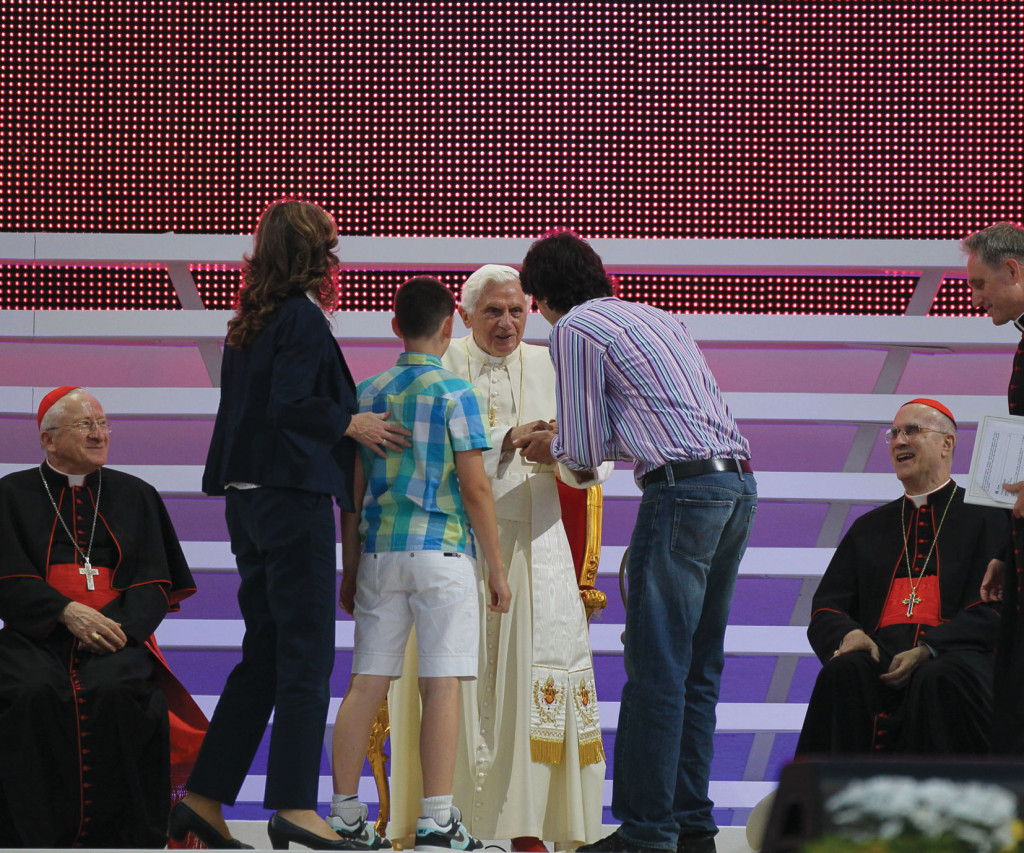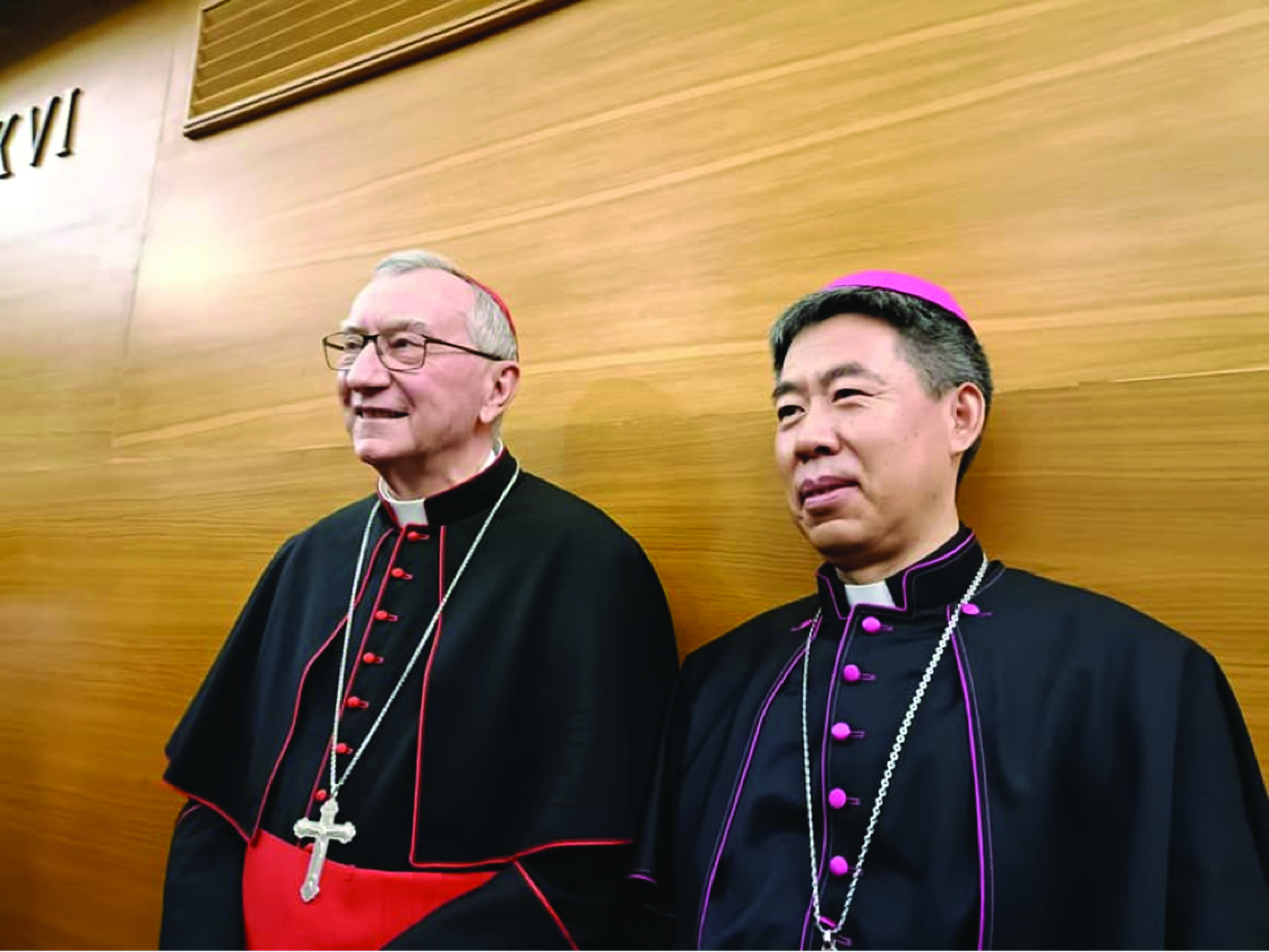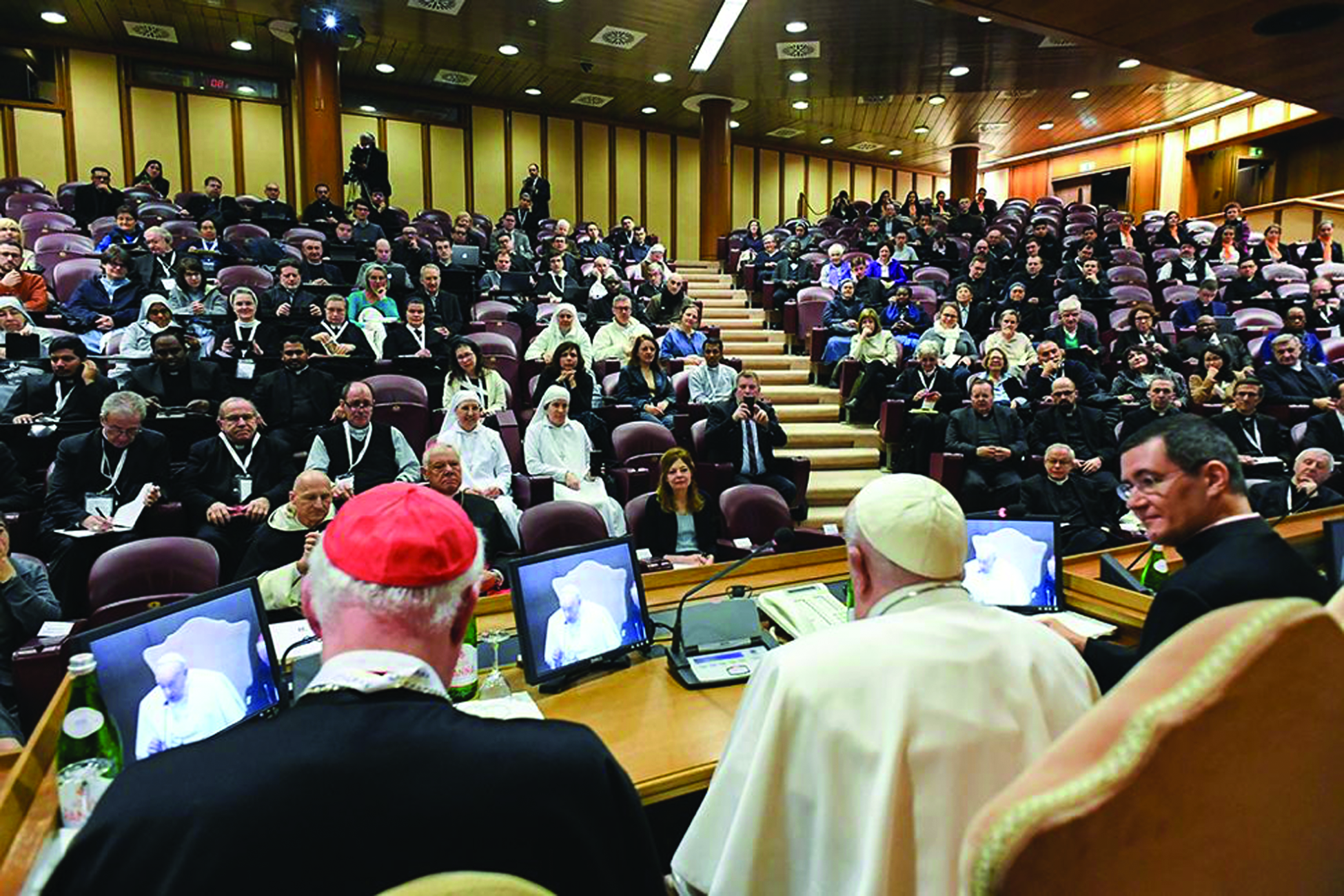They are the “Veilleurs,” that is, the “Watchers,” silent and peaceful vanguards of a larger mass movement: Manif pour tous, born in France last January to defend the family against the new “Taubira” law (named after the politician who proposed it), which allows same-sex couples to “marry” and adopt children. This law passed in France on April 23, even though millions of people expressed their opposition by peaceful demonstrations in streets and squares all over the country: there were more than 1 million in Paris alone on March 24.
Several demonstrators were arrested just because they wore t-shirts with the logo of the Manif pour tous on them: a mother and a father holding their children by the hand.
Protests kept on — and are still going on — even after the approval of the law. “Veilleurs” and “Veilleurs debout” are an example of it. They are mostly young people who carry on a battle for the family. They gather in the evening and sit-in in front of public and symbolic places (General Assembly, Opera, Louvre, Pantheon, ministries), with candles in hand: they sing, read texts about freedom or hope, and pray.
“We come in peace to defend the right of children to have a father and a mother,” is written in their official Twitter profile.

People wave trademark pink, blue and white flags during a protest march called La Manif pour Tous (“Demonstration for All”) against France’s legalization of same-sex marriage in Paris on May 26. The French parliament on April 23 approved a law allowing same-sex couples to marry and to adopt children, a decision promoted by French President Francois Hollande (CNS photo).
The initiative “Veilleurs debout” is even more singular: it involves a spontaneous, peaceful demonstration by individuals who stop and stand like statues in front of symbolic places. They respect the public order, keep silence, without any exterior sign but their presence to draw attention.
The French Church has openly supported the mobilization for the family, especially in its first steps, and condemned the “gender theory” that denies sexual differences.
“In this way,” said Cardinal André Vingt-Trois, archbishop of Paris, “a violent society is being set up. What we are already seeing is the inability to accept differences in social life, and this is leading to a crystallization of the claims of small groups.”
In a recent speech at Westminster (London), Bishop Jean Laffitte, secretary of the Pontifical Council for the Family, gave a lecture on “Marriage and the family in a culture of relativism.” He said that “the spread of new cultural models is accompanied by new moral criteria. This is so especially among young people, with a new conception of interpersonal relationships, the value and practice of sexuality and the very concept of human life. Any reference to natural law is abolished and banned.”
The Family and Society Commission of the French Bishops’ Conference, after the approval of the law, published a document entitled, “Let’s keep up the dialogue!”
It added: “If Christian faith is a resource that gives sense to life, then it is possible to listen to and feel, to say what is now a source of guidance and ethical inspiration in a pluralist and secular society.” The document explains why same-sex marriage is not an adequate answer to the request for acknowledgement from same-sex couples, and encourages the legislators to take care of the common good. “The practice of democracy implies admitting previously that different opinions are legitimate. On this basis, citizens and their organizations can freely express their opinions, having respect for the others. Scorn and verbal or physical violence have no place in the democratic process.” The presence of Catholic people in the public debate “is based on a vision of man that is rooted in the Christian faith, and in reason… In the Christian vision, the human person is a relational being” and “the union of a man and a woman in marriage is the place to live this relationship.”

Feast of Testimonies, held in the park at Bresso, Milan, in the presence of Pope Benedict XVI,
during the VIIth World Meeting of Families (June 1-3, 2012) (Galazka photo)
In Italy, too, the debate over the family emerges periodically, as in Bologna, where the mayor recently stated that “the path is drawn, and Italy, too, needs to become a civil country and acknowledge marriage between same-sex individuals and gays’ right to adoption.” In a public statement, Cardinal Carlo Caffarra, the archbishop, wrote: “Saying that for society or for children there’s no difference between homo and hetero couples, means denying an obvious fact. Our thinking has become so obscure that we imagine that laws actually establish the truth of things, and in this blotting out of the common good each individual’s desires are considered his/her fundamental human right.”
In Rome, some demonstrations took place in Piazza Farnese, where the French embassy is, in conjunction with Manif pour tous appointments in Paris. In the same square the “Veilleurs” organized some silent witness and prayer meetings.
In the United States, the Bishops’ Conference’s website “Marriage: Unique for a Reason” (www.marriageuniqueforareason.org), is a success, and two years after its launch is among the most viewed in the country. It tries to explain and illuminate the singular reality that the word “marriage” refers to: the faithful, fruitful, lifelong union between a man and a woman. In the end, what’s at stake is precisely the authentic meaning of “marriage.” Readers are invited to explore the resources available on the website “to understand why marriage is and can only be the union of one man and one woman.”






Facebook Comments